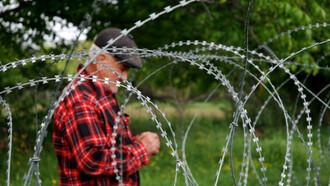Economic diplomacy stands as a linchpin in the pursuit of the European Union's (EU) strategic objectives, encompassing both intra-European cooperation and external policy goals. In a rapidly evolving global landscape, the priorities of EU economic diplomacy must be carefully analyzed and strategically aligned to advance the interests of member states while promoting broader objectives such as sustainable development.
Emphasizing the importance of preserving a stable, rules-based international trading environment, one perspective underscores the need for managing bilateral relationships and contributing to overarching policy areas such as the Sustainable Development Goals. By embedding labor rights, human rights, and environmental standards in trade agreements, the EU can ensure their proper implementation while promoting fair competition and protecting EU standards. Another viewpoint underscores the need for a coordinated approach in EU economic diplomacy, with emphasis on the role of the European Parliament in defending EU economic interests abroad. Through diplomatic channels and committee missions, the Parliament can convey important messages and reinforce the EU's economic agenda on the global stage. Collaboration with the European External Action Service (EEAS) and member states' diplomatic services is essential to maximizing the impact of EU economic diplomacy. On the other side, advocating for increased research and development in economic diplomacy highlights the potential for enhancing the competitiveness of European companies on the international stage. By leveraging new business strategies and fostering collaboration between diplomats, scholars, and business practitioners, the EU can maintain its dominant position in global commerce. Furthermore, aligning economic, political, and business objectives is seen as crucial for effective competition in the global market. Another perspective could emphasize the role of stronger EU economic diplomacy in fostering better policy linkages and addressing business-related concerns at high-level political meetings. By raising awareness of business needs and facilitating access to finance, the EU can support the economic growth of European companies while promoting sustainable development goals.
In order to maximize its effectiveness in economic diplomacy, the European Union should adopt a proactive approach that encompasses both offensive and defensive strategies. This proactive stance involves leveraging the collective organizational resources and competencies of EU institutions and member states to add tangible value to EU policies towards third countries. On the offensive side, the EU should strategically assert its economic interests and objectives on the global stage. This includes actively promoting EU standards, values, and priorities in trade negotiations and international agreements. By advocating for fair competition, environmental sustainability, and respect for labor rights and human rights, the EU can advance its economic agenda while upholding its core principles. At the same time, the EU must be prepared to defend its economic interests against potential threats and challenges posed by other countries' policies and economic diplomacy efforts. This defensive aspect of economic diplomacy requires a vigilant approach to monitoring and responding to external developments that could impact the EU's economic well-being. Whether it involves addressing unfair trade practices, protecting European industries from dumping or subsidies, or safeguarding against intellectual property theft, the EU must be proactive in safeguarding its economic interests.
Yet, the EU's economic diplomacy is not solely about safeguarding its interests—it's about forging mutually beneficial partnerships. The EU should not solely focus on protecting its own interests but also on promoting mutual benefit and cooperation with third countries. By engaging in constructive dialogue and collaboration, the EU can build partnerships that foster economic growth, innovation, and prosperity for all parties involved. Essentially, adopting a proactive stance in economic diplomacy requires flexibility, forward-thinking, and a dedication to principled interaction. Skillfully balancing both assertive and defensive strategies, the EU can wield its economic influence adeptly on the global platform, thereby laying the groundwork for a future marked by greater equity and prosperity worldwide.
References
1 Bouyala Imbert, F. (2017), "EU economic diplomacy strategy", European Parliament, 9-16, March 2017.
2 Business Europe, "EU Foreign Economic Diplomacy", Business Europe, 9-12, April 2016.
3 Vasilovschi, N., "Convergence Between a New EU Economic Diplomacy and International Business Strategies", HSS, vol. VI, no. 1: 52-61, March 2017.
4 Weyand, S., "A Stronger Europe in the World: Major Challenges for EU Trade Policy", College of Europe, 10-14, April 2020.















